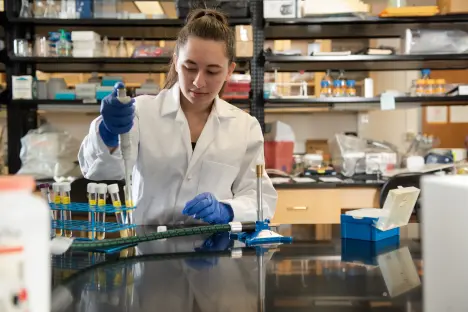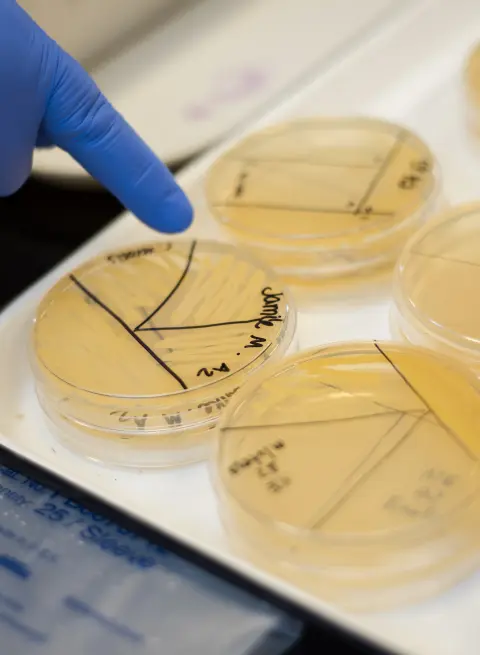
Toxicology Program Overview
Have you ever wondered why prescription drugs have side effects? Or why some plants and animals are poisonous? Or how exposure to air pollutants affects people’s health? As you learn the answers to these questions, you will be preparing for a rewarding career in toxicology.
Toxicology is the study of how chemicals affect human health and the environment. AU is one of only 13 schools in the country that offer a comprehensive bachelor’s degree in this field. Our program provides coursework in biology and chemistry that prepare you for career opportunities in industry and government, medical/health professional schools or graduate research programs.
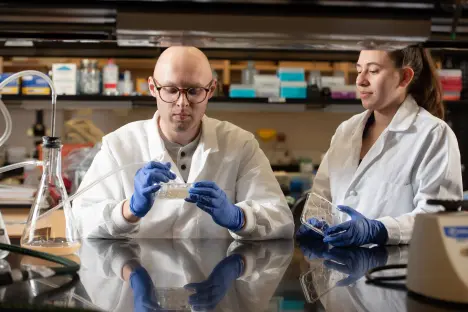
Is a Career in Toxicology Right for You?
This program is ideal for anyone who:
- Is passionate about investigating chemicals to reduce their harmful effects.
- Wants to understand how the toxicants in the environment affect people’s health and discover ways to eliminate them.
- Finds poisonous plants fascinating and wants to learn more about them.
- Aims to improve the safety of drugs and other chemical products.

Learning Experiences
You can look forward to:
- Learning from an extraordinary group of professors who are respected scholars in their fields.
- Using modern science instrumentation to conduct research in unique facilities, such as:
- Four laboratories dedicated to collaborative research.
- Five area environmental preserves.
- A greenhouse and research animal facility.
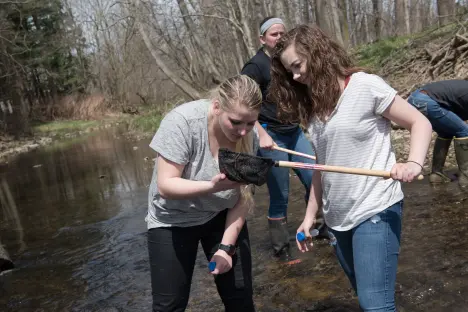
Sample Curriculum
Learn more about the Toxicology curriculum by reviewing the Four-Year Curriculum Guide and Academic Catalog.
Also interested in Environmental Science? Check out our Environmental Science/Toxicology double major designed for students who wish to pursue a career in Environmental Science or Toxicology with an emphasis in Environmental Science.
First Year
Second Year
Third Year
Fourth Year
Scholarships

Ashland University has been awarded a grant from the state of Ohio to provide Choose Ohio First Scholarships to outstanding students with interests in the natural and physical sciences. These scholarships support academically strong students who plan to continue to graduate school, health-related professional programs or employment in STEM industries after completing a bachelor’s degree.
AU Dean's Scholarship
The Dean's Scholarship was created to enhance the undergraduate academic experience for new first-time and transfer students enrolled in a major within the College of Arts & Sciences. It is a merit-based, renewable scholarship that can be "stacked" on top of other awarded AU academic scholarships. In addition, students have the opportunity to participate in unique academic communities with a focus on career coaching and preparation.
Ohio EPA Scholarship
These merit based, nonrenewable scholarships will be given to undergraduate students enrolled at an Ohio public or private college/university who can demonstrate their knowledge and commitment to careers in environmental sciences or environmental engineering. Students must be entering their Junior or Senior year. Awardees will be selected by the Academy appointed panel.
Graduate Outcomes
When you graduate, you’ll be ready to work in applied areas, such as clinical medicine, veterinary medicine, pharmacy and forensic science. With your bachelor’s degree, you will qualify for entry-level toxicology jobs as technicians, lab assistants or animal-care specialists.
What kinds of work will you do? As a toxicologist you may:
- Conduct basic research on the effects of toxicants on human health and the environment.
- Develop and perform tests to assess the safety of drugs and other chemical products.
- Assist government agencies in developing regulations and standards in areas ranging from food safety to pollution control.
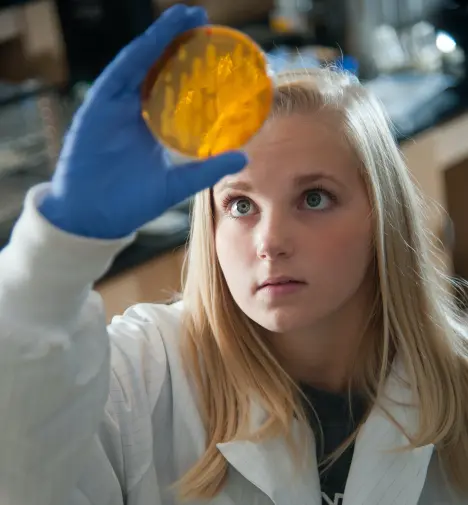
Career Opportunities
According to the U.S. Bureau of Labor Statistics the average annual salary for Forensic Science Technicians was $64,940 as of 2023. Their report also projects a 14% growth rate for this profession from 2023 to 2033, outpacing the average growth rate for all occupations.
